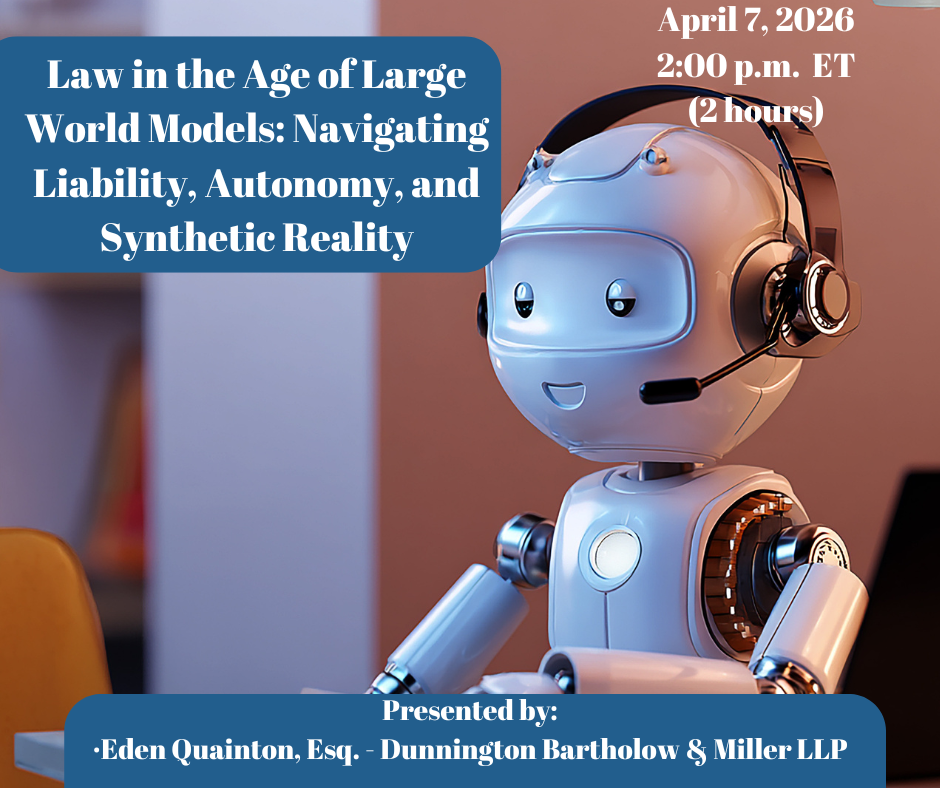
Exciting new series on “Voice, Body and Movement for Lawyers – How to connect with the jury and find Justice Through Dramatic Technique!”
Click here to find out more
This course explores the transformative impact of artificial intelligence (AI) on litigation practices. It covers the practical applications of AI in daily legal work, from summarizing documents, drafting pleadings, to conducting depositions, with an emphasis on responsible adoption and ethical considerations. Participants will gain insights into how AI-assisted drafting, legal research, and innovative deposition and transcription services can enhance their practice and improve efficiency.
Learning Outcomes:
• Understand the ethical implications and professional contact standards related to AI in litigation. Apply AI tools to improve efficiency in legal drafting and document management.
• Implement AI-enhanced legal research techniques for more in-depth case analysis.
• Access the benefits and limitations of AI-assisted deposition and transcription and analysis. Integrate AI technologies into law firm workflows while maintaining confidentiality and ethical standards.

In the rapidly evolving landscape of employment law, arbitration agreements have become a cornerston...

Recent studies have shown that there has been a dramatic increase in impairment due to alcoholism, a...

Large World Models (LWMs)— the next generation of AI systems capable of generating...

United States patent law and the United States Patent and Trademark Office’s patent-related gu...

Successful personal injury defense practice requires far more than strong legal arguments—it d...

This Shakespeare?inspired program illustrates how Shakespearean technique can enrich courtroom advoc...

This companion program to Part 1 goes deeper into the rhetorical power of Shakespeare, emphasizing h...

This program provides a comprehensive analysis of the Sixth Amendment Confrontation Clause as reshap...

This presentation teaches attorneys how to deliver memorized text—especially openings and clos...

This CLE program covers the most recent changes affecting IRS information reporting, with emphasis o...